|
Over the past year there has been an escalation in reputable sources expressing concerns about the insidious chemicals which come under the category PFAS or 'the Forever Chemicals'. During Plastic Free July, take some time out to find out more by searching the internet - perhaps beginning by watching this video ...
0 Comments
On 29 January 2024 David Blore recommended the following article by Dr Johanna Nalau, an adaptation scientist and associate professor at Griffith University based on the Gold Coast. Johanna's research is focused on understanding how, why and when people make decisions to adapt to climate change, and what role science can play in that process. She also leads the Adaptation Science Research Theme at Cities Research Institute at Griffith University. The article was published by Crikey on 29 January 2023; originally published under Creative Commons by 360info™ and is shared here under that status. Most conversations about climate action in Australia centre on reducing emissions.
Yet reducing emissions is only part of the climate story: we must also plan for how we adapt to the impacts of climate change. How we adjust to rising sea levels, prepare for heatwaves, and manage changing rainfall patterns is what makes nations resilient in the face of climate change. The floods that devastated north Queensland in December 2023, northern NSW in 2022, and 2020’s Black Summer bushfires show that Australia needs to step up its conversation about how it plans to adapt to the impacts of climate change. But in Australia, where climate change has been a longstanding political issue, legislation on climate adaptation has been slow. As the Australian government prepares to release its issues paper for its first national adaptation plan in the coming months, it’s a good time to reflect on why Australia has lagged on climate adaptation legislation — and what’s needed to make its plan a success. Australia’s lagging, but the plan is afoot National adaptation plans (NAPs) are a key tool for identifying country-level priorities for climate adaptation. They were developed as a mechanism to accelerate adaptation planning at the United Nations Framework Convention on Climate Change (UNFCCC) COP16 in 2010. Since then, around 70 countries have developed one. While the most developed countries (including Finland, Norway, Switzerland, the UK and New Zealand) and around 40 developing countries (including Chad, Fiji and Sudan) have developed plans, Australia’s progress on climate adaptation has been slow. Under the Morrison Coalition government in 2021, Australia did submit a national climate resilience and adaptation strategy to the UNFCCC. But it was never legislated and consisted mainly of existing initiatives. The Albanese Labor government made a major commitment to climate change adaptation in its 2023-24 budget, with a significant focus on completing a national climate risk assessment and national adaptation plan. That plan is underway: with consultations in 2023, the government is set to release an issues paper in early 2024. This will support broad public consultation throughout 2024, and an anticipated NAP completion in time for the COP29 conference in Baku in November. Three key reasons for slow progress Australia has lagged on climate adaptation because climate change and climate science have been longstanding political footballs. We got off to a good start with the 2007 national climate change adaptation framework agreed upon by the Council of Australian Governments (COAG), which was followed by significant investments in the National Climate Change Adaptation Research Facility. Yet, with a change of government, climate change became a marginalised issue for years. When former prime minister Scott Morrison revealed his 2021 climate adaptation strategy, h ewas criticised for engaging multinational consulting agency McKinsey — which has advised 43 of the 100 biggest corporate polluters — to do the modelling rather than Australia’s national science agency, the CSIRO. Climate adaptation has not been a priority due to other policy issues. But Australia’s slow progress with developing a NAP rests partly on the myths that a focus on adaptation reduces any ambition to reduce emissions, and that adaptation is mainly a local issue, best dealt with at the local government level. These are both incorrect: adaptation and mitigation are both core climate actions, and all levels of government have a role in climate adaptation. These assumptions are now changing. There are plenty of opportunities for a range of stakeholders to lead in climate adaptation. Many state and local governments have, in fact, already developed climate adaptation plans and strategies, signalling an increasing understanding that urgent climate adaptation is needed. Why adaptation plans matter Critics of the NAP have questioned whether the Albanese government’s multimillion-dollar commitment is worth the investment. But there are several ways in which a truly national plan — as opposed to only local and state strategies — could benefit Australia. 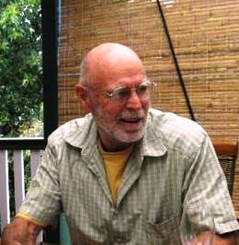 Now living in the West End in Brisbane, Charles and Penny Jones lived for many years in Lima East and were founding members of the environment group which preceded Benalla Sustainable Future Group. Two years ago we asked avid reader and thinker about matters environmental Charles to recommend a list of books which were in the vanguard of thinking about matters related to sustainability - you can find his recommendations at 'Reading to Begin a New Narrative - Books read in 2021'. Last year we asked Charles if he would like to follow up with a further list, however at the time he was working to complete a background paper on sustainability to present to the three new Greens MPs from Brisbane in the federal parliament. Charles has made this paper available to us - it is a rich, thoughtfully prepared and extremely wise paper which we recommend to members concerned deeply about the bigger picture. It's only a short article, but though written in November 2017 and set in US context, still holds true. We're quoting it in full and have added the video which accompanied it below. Source: Daryl Chen, 'How to Talk to Someone who doesn't believe in climate change' Nov 20, 2017 https://ideas.ted.com/how-to-talk-to-someone-who-doesnt-believe-in-climate-change/ Not every conversation with a climate denier has to lead to raised voices and hurt feelings. Here’s how to do it constructively.“Climate change has become one of the taboo topics — like sex, politics and religion — that doesn’t get talked about at the Thanksgiving table,” says Anthony Leiserowitz, director of the Yale Program on Climate Change Communication. “In fact, most of us are willing and even interested to discuss it, but their perception is other people don’t want to.” So go ahead and engage with the uncle who insists that the weather has always been changing and it has nothing to do with us. Or the in-law who can’t make up her mind about anything — whether global warming is real or not, whether it’s serious or not, or whether it’s human-caused or not. Here’s some advice to guide you. 1. Tailor your argument to them; don’t just use the one that worked on you.We’ve all had our own a-ha moments that led us to believe in climate change — maybe it was learning about how the planet keeps hitting new temperature highs, seeing photos of the Arctic ice receding, or noticing that spring keeps coming earlier and earlier to your area. But one of our biggest mistakes, says Leiserowitz, is assuming that other people will respond to the same thing and our feeling frustrated when they just. don’t. get. it. “The dominant way of communicating about climate change is to keep pounding away with the same arguments and asking people ‘Why don’t you accept this?’ and ‘What’s wrong with you?’,” he explains. “The more you do that, the more you’ll trigger their defenses.” 2. Tell them what worries you about climate change.Many of us jump into debate mode when discussing climate change; we feel like we need to present all our best evidence. Instead, we should look at it more like we’re sharing a story about our lives. “They can dispute your facts, but they can’t dispute your story and your feelings,” says Leiserowitz. For example, tell your uncle about how you saw on Facebook that your friend’s parents lost their home to the California wildfires and that you’re concerned about how often wildfires are occurring in the US. Do they know anyone affected by the fires? 3. Appeal to their basic values — not yours.“Liberals tend to endorse values like equality, fairness, and care and protection more than conservatives do,” Stanford University sociology professor Robb Willer explains in a TED Talk. “And conservatives tend to endorse values like loyalty, patriotism, respect for authority, and purity more than liberals do.” Too often, when liberals talk about climate change, they emphasize typically liberal values like justice and equality — they talk about how the economically disadvantaged have been hit harder by it and how our country needs to look out for all its citizens. Instead, try tapping into conservative values like patriotism and purity and talk about how your country can show its leadership on the global stage by acting decisively to fight climate change. Or, how it could be a point of national pride that we preserve the beauty of our natural environment. 4. Encourage climate-friendly acts that match what’s most important to them.Everyone — even people who think that climate change is a UN hoax — has people, places and pastimes that they care deeply about. Show your relative some easy ways in which adopting pro-environment behaviors could line up with their passions. Are they thrifty? Mention that choosing green options like hybrid vehicles and CFLs could save them lots of money. Focused on their kids? Supporting efforts to prevent coastal erosion means their children will someday be able to take their kids to the beaches they love. Health-conscious? They’ve got a better chance of living longer if they cut down on their meat consumption. 5. Accept small steps in the right direction.You may be hoping your relative leaves your conversation, fully converted in heart and mind. But when did you ever do a 180 on a major issue after a single chat? So even if you’d rather they skipped their weekly steak because they want to reduce the methane emitted by cows, get over it. You’re still nudging them towards choices that will help combat global warming. And though these changes may be small, they could be the first steps in a bigger transformation." The following Letter to the Editor was published in the Benalla Ensign on Wed 19 October 2022. Letter to the Editor
Time for Council to change its priorities Events of the past week in Benalla (and in recent months elsewhere in Australia) must surely sharpen our Council’s attention towards addressing climate change. The 1993 flood was called “a 1 in 100 year event”, but climate scientists have been warning us for decades that extreme weather events will become more frequent in Australia and in fact worldwide, and so it is being proven true. With a super-saturated catchment, and forecasts of further heavy rainfall events this year, we may not have seen the last of the floods. This will be very worrying for people residing in vulnerable areas. Twelve months ago, Council rejected a petition with 600 local signatures calling for it to declare a “Climate Emergency”, and to develop policies which would help mitigate the effects of climate change into the future. Instead they opted to pass a motion stating they recognised climate change was a concern, and they would work with the community to revise their “Climate Change Adaptation Plan”. That still has not happened, and the question needs to be asked, is this revised plan going to include sections on advising residents how to get used to being flooded on more regular occasions? Or how and why you should stay cool when it is 50 degrees? Wouldn’t it be much better, and also more reassuring for the future generations of this city, to see a document produced detailing action plans to help try to stop the above scenarios occurring? This would need to be backed up by a Council budget that actually prioritised purchases and projects reducing greenhouse emissions, and created more green and cooler spaces in the urban areas, as opposed to most of the concrete, brick and bitumen heat sinks of the new subdivisions. Finally, did anyone notice the foundations of the proposed boutique cinema floating downstream last Friday? Another question for Council – why was this project approved for construction in a flood zone? Peter Holmes, Lima East Phone: 0438625638 email: [email protected] Did you know it's the United Nations International Decade of Ecosystem Restoration? 'The Hidden Wonders of Soil' is part of TED's global initiative to accelerate solutions to the climate crisis, to build a better future in the race to a zero-carbon world. In this program, Climate change scientist Jane Zelikova calls for agricultural practices that protect Earth's soil by growing climate-adapted crops that don't mess with microbes, "Soils are the literal foundation of life on this planet -- ...the climate solution just waiting to be unlocked," Watch the full 2021 TED Countdown Global livestream here: https://youtu.be/SG_vqlb1pOQ
The following Letter to the Editor was published in the Benalla Ensign on Wed March 16, page 15.  Damon Gameau Damon Gameau Sent: Sunday, 13 March 2022 10:15 AM To: '[email protected]' Subject: Letter to the Editor Where are our Leaders? Last Saturday afternoon, the Australian film producer Damon Gameau (“2040”, “That Sugar Film“) was at BPACC to introduce his latest film “Regenerating Australia”, and host a talk-back discussion centred on ideas to tackle one of the big issues of our present and future – climate change, and how it will impact our way of life if we don’t make the innovative changes required to avert the dangers it poses. Our local Councillors and Managers were invited to attend, but not one was present. This poses the question – “where is the leadership to come from in our community to tackle these issues?” This is not just a local problem – we have witnessed lack of leadership at the federal level of government with regards to climate change. There is no EV policy in place in Australia, the government is still handing out huge amounts of money to fossil fuel companies to mine coal and gas, and there are no transition policies in place to help workers in these industries adjust to the alternative technologies. The past few weeks should have shaken our leaders out of their comfort zones. Surely the record rainfall totals and floods of Queensland and NSW, with the consequent displacement of thousands of people, billions of dollars needed to restore communities (or preferably relocate them), and the emotional damage sustained by the victims, all must be a wake-up call to our leaders that climate change is real, and here now! The other crisis (Russia invading Ukraine) has affected the World supply chain of oil, so in the space of just over a week, petrol prices have increased by 50%, and still rising. This leaves Australia in a very vulnerable position because of the greater distances people and goods need to travel – we need to rapidly transition away from this reliance on petrol to EVs and public transport, and this is an area of policy that all levels of government must be involved with. In Benalla, climate action must start now. Peter Holmes, Lima East email: [email protected] The Benalla Sustainable Future Group is undertaking a review with objectives including:
While the questions for Members and Non-Members can be answered and submitted online using the forms linked below, they can also be used as the basis for an informal (or more formal if you prefer) kitchen table conversation! You could hold the conversation with friends at a cafe or around a kitchen table and compile items using a whiteboard or notes, then send them to us at [email protected]; or distribute the form to be completed individually and collected at the end of the conversation for sending on to the BSFG Committee. Here are the questions - For Members
For Non-Members
(These Non-Member questions can be answered and submitted to us using this Non-Member online form) It would be wonderful if you could assist BSFG with this important review of our Group in this way! Find out more: BSFG Review 2022 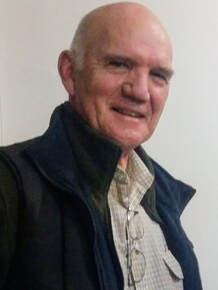 Peter Maddock's article 'Net Zero Benalla' in BSFG's November newsletter references protocols and tools which can assist councils to carry out a community wide emissions inventory and highlights work being done both locally and globally by other cities and local governments. These include Cities Power Partnership (Benalla Council is a Member), ICLEI Internatioal Council of Local Governments for Sustainability, Global Covenant Of Mayors for Climate and Energy, C40 Cities, and the GHG Protocol Standard for Cities, the GPC which provides guidance on a Council Operations emissions inventory. The Snapshot Climate Tool, developed by Beyond Zero Emissions with local government specialists Ironbark Sustainability, provides participating councils in Australia with an online emissions profile which is sufficiently accurate to provide them with an insight into community emissions. Peter also references Ironbark Sustainability’s website article on Science Derived Targets for Australian Councils and the 2021 Australian Local Government Climate Review which provides a comprehensive analysis of climate change actions, barriers and opportunities facing councils and communities. Bev Lee Media Team Is the fear of Climate Change Keeping You Up at Night? How to Cope With Eco-Anxiety - Good Housekeeping, February 4 2022. "In some respects, climate angst is like other anxieties, which involve feeling tense and fearful when we ponder something that might happen in the future. ... But in other ways, climate anxiety is unique. Unlike a lot of what we typically focus on when we’re anxious (which may be overblown) there’s good evidence that what we are worried about may well come to pass. “Climate anxiety is not a mental illness, because it’s rational to be concerned” ... In its healthiest form, climate anxiety can be a good thing: calling your attention to a problem you need to prepare for, psychologists say. ...But the anxiety so many of us feel about the planet we love can be paralyzing, says Renée Lertzman, Ph.D., a consultant on the environment, psychology and culture whose 2019 TED Talk on the topic has millions of views...". The writer of the article, Meryl Davids Landour, suggests taking these steps to help to cope with climate anxiety...
This article appeared under the category health/wellness in Good Housekeeping on February 4, 2022--Is the Fear of Climate Change Keeping You Up at Night? How to Cope With Eco-Anxiety. Meryl Davids Landau is an author and magazine writer whose work has won numerous awards, including a nomination for a prestigious National Magazine Award and a first-place outstanding-article award from the American Society of Journalists & Authors
How to mark the UN's 'International Year of the Creative Economy for Sustainable Development'? Tim Bowtell's thought provoking mural 'Cornography', painted on the side wall of the Seniors' Centre during the Benalla Wall to Wall Street Arts Festival 2018, clearly causes viewers to pause to reflect upon Sustainable Development. It is also a stand alone work by Tim, a leader in Benalla's creative economy, creating a powerful call for a sustainable future, a call he returned to during the Window to Window Festival with portraits of Greta Thunberg (2019) and David Attenborough (2020). It's now December 2021. The Council decided not to go ahead with a mural painted by Tim at this year's Window to Window. The side window of the Council Offices is eerily empty, street discussions muted. Perhaps it's time to revisit and reflect upon 'Cornography', a powerful mural by a leader in Benalla's creative economy, as we near the conclusion of the 'International Year of the Creative Economy for Sustainable Development'. Tim Bowtell writes about 'Cornography', Wall to Wall Festival 2018"The ‘Collins Street farmer’ represents the corporate organisations that have taken control of our food chain. He looks down at a hamburger that consumed around 2,500 litres of water to produce. The city scape in the background describes the affluent Western world fed by these farming practices, people disconnected and too busy to think about where their food comes from and how it is produced. Look carefully in the top left corner and you will see a bulldozer clearing the last remaining old growth forest. Acres of monoculture corn and soy sprawl across the horizon where these forests once stood. The primate on the stump sits helplessly wondering where its home has gone. The dead canary sends an alarming message to stop these unsustainable practices before all species on the planet are doomed. The cows are locked in small yards. Part of the production line, they are force-fed corn on a conveyor belt. The markings on the cows form the world map indicating that this is a world problem, while on the other cow the face of an African child peers out, wondering why that corn isn’t grown to feed his starving country. The whole scene plays out in knee-deep rising water caused by global warming and rising sea levels. My mural was inspired after watching a documentary called ‘Cowspiracy - the sustainability secret’. For me it was a game changer. I became a vegetarian the very next day. “Filmmaker Kip Andersen uncovers the most destructive industry facing the planet today – and investigates why the world’s leading environmental organisations are too afraid to talk about it. Animal agriculture is the leading cause of deforestation, water consumption and pollution, is responsible for more greenhouse gases than the transportation industry, and is a primary driver of rainforest destruction, species extinction, habitat loss, topsoil erosion, ocean “dead zones,” and virtually every other environmental ill. Yet it goes on, almost entirely unchallenged.” Tim's post originally appeared on North East Artisans website on June 6 2018. My friend Ray lives in the UK and he was asking me whether our great leader would come to COP 26 or whether coal might have an unpleasant whiff about it (his words). Here is my reply: All the states have more ambitious plans than the Federal Government. Indeed, the Federal Government has NO PLAN. Only now, on the eve of COP 26, are they trying to scratch something together. That's after eight years in power. What we will see in a matter of days is a statement about net zero by 2050 with little real action. It will not say anything about retiring coal powered electricity. It will not say anything about moving away from gas or limiting exploration. It will talk about green hydrogen because one of our rich iron ore magnates believes in CC and is investing billions to set up green hydrogen plants, despite the Feds. Solar will continue to grow, despite the Feds. Wind will continue to grow including now offshore, despite the Feds. The only positive investment the Feds are behind is a large pumped hydro plant being added to the Snowy Hydro scheme. That was instigated by the previous PM Malcolm Turnbull before he was voted out by his LNP party. They should be putting funds into transmission lines but they sit on their hands. The other thing you will hear about is sequestration - carbon capture and storage. This is a complete furphy. First off it could only capture a percentage of emissions from coal-fired power stations and the target is zero. Secondly it adds cost. Thirdly if you look at potential storage sites the amount available and the geographic places adds up to very little. The only place it has been used successfully is to force more oil out of oil wells - adding to CC. But your average punter doesn't know this and they are taken in by the PM's spin. Of course all the fossil fuel people, urging him on and asking for hand-outs, know it but they won't say. Some States are doing better than others. South Australia is well ahead. Other States including Vic are going well but like a bet each way. They haven't yet turned down gas exploration requests. Fugitive emissions from gas are not properly accounted for and the methane graph is scary. So, in summary, anything done so far is DESPITE this government's policies. They have in fact HINDERED progress. We have a Federal Minister for emissions reduction who actively campaigns on behalf of coal and gas. The PM's own department head is straight from the fossil fuel industry and they have stacked all the advisory bodies. But now they are being exposed for what they are and even the general voters are now more aware. 70% plus of Australians say we should do more to act on CC. Going back to your email, you asked about batteries. They are now being added to the larger solar farms here to time shift the output. I don't think the price will fall too quickly because of the parallel demand for EVs. There is the possibility for different types of batteries for large scale installations e.g. flow batteries. A breakthrough is sorely needed. Some States here are pushing ahead with their own pumped hydro schemes and I think that's the solution. Let's see if my predictions re the Feds plan are correct. I then went on to explain the local term ‘furphy’, though, in retrospect, I could have used some stronger language. So how did it all pan out? My prediction was correct but I claim no great predictive skills. Were there any surprises? Absolutely not. It’s all business as usual, including the spin. As Scott Morrison was about to fly off to Europe Barnaby Joyce took great pleasure in announcing that he was instrumental in ensuring methane reduction was not part of the plan. Scott Morrison immediately fronted the media to insist that he never had any intention of agreeing to any reduction. What a sad state of affairs. Here, on the eve of COP 26, we have Australia’s PM and Deputy PM publicly arguing over who has done the best job at rejecting one important element of climate action. I wrote about methane and fugitive emissions in the last BSFG newsletter. The recent rise in levels is totally scary. This will only be exacerbated if ‘clean hydrogen’, as mentioned in this latest plan, includes hydrogen derived from fossil fuels - and it does in Angus Taylor’s rhetoric. Victorian Federal MP Darren Chester also mentioned it as being available from brown coal in the Latrobe Valley - and he is one of the Nationals who is supposedly a supporter of strong climate action! Ahh, pity help us. All we really need is a Federal government which simply asks the States, “How can we help?” and States who truly are committed. Ian Herbert
This post was originally published in the BSFG Newsletter #31, 10 November 2021. BSFG member and Web Team leader Peter Maddock has a particular interest in the limits to growth and steady state economies. Peter is currently reading Jason Hickel's book 'Less Is More' and says he is finding it excellent Peter also recommends reading Jason's blog, particularly the post Degrowth and Modern Monetary Theory (MMT): A Thought Experiment (10 September 2020). Jason's website includes a page of links to Podcasts and Videos he has featured in - go to https://www.jasonhickel.org/media  My grandmother used an early Kooka gas cooker. I loved sitting at the kitchen table chatting to her as she cooked meals for us on this little green stove. Cooking with gas at my grandmother's always produced better results than on our electric cooker - you could finely adjust the heat for superior cooking results. Times have changed, electric stoves are increasingly sophisticated, while gas is of concern as a fossil fuel energy source. Early adopting retrofitters are 'making the switch' - moving away from from gas to renewable electricity as their household energy source Sadly, the Federal Government is continuing to promote a Gas Led Recovery to stimulate the economy. Gas is seen as a transition fossil fuel as we transition to ultimately a fossil fuel free energy future. However gas due to fugitive emissions can have a greenhouse potential equivalent to coal. As placards at Benalla's School Strike for Climate rally said, 'Fund Our Future, Not Gas'. The following webinar 'Going All Electric', streamed live on on September 25 was included in the Retrofitting Week program leading up to Sustainable House Day on October 17 2021. Bev Lee Recommended website: 'Make the Switch' - great site, ACT based, but applicable universally. Recommended Background Reading: Bill McKibben 'It's time to kick gas' The New Yorker, May 12, 2021. In Doughnut economics by Kate Raworth, we see that markets are inefficient and growth is not the holy grail. It's time for a new economics model: the doughnut economics. Kate Raworth's plea for the 'doughnut economics' casts doubt on the credo of economic growth for sustainability: there are hard limits to what you can do to the planet. Kate Raworth's doughnut economics could change our future. Peter Maddock 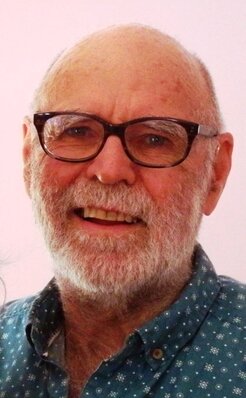 We recently asked Charles Jones, a founder of the predecessor of BSFG, if he could provide us with a list of reading he would recommend to others. A great reader and thinker about issues related to a sustainable future, Charles shared a list of books of interest read in 2021, thanking us for the opportunity to share this with others. "Because time is running out I would emphasize the first three. We need to begin a new narrative to get the possibility of massive social change into the public arena. That means the planning should begin now, maybe with a timeframe of about 10 years. Thanks for the opportunity, Charles" Some books of interest read in 2021: Charles Jones
Kate Raworth, 2017 Doughnut Economics: Seven Ways to Think Like a 21st-Century Economist Jason Hickel, 2021 Less Is More: How Degrowth Will Save The World Tim Jackson, 2021 Post Growth: Life After Capitalism Richard Beasly, 2021 Dead In The Water: A Very Angry Book About Our Greatest Environmental Catastrophe…The Death of The Murray-Darling Basin Margaret Simonds, Quarterly Essay 77, 2020 Cry Me a River: The Tragedy of The Murray-Darling Basin Marian Wilkinson, 2020 The Carbon Club: How a Network of Influential Climate Sceptics, Politicians and Business Leaders Fought to Control Australia’s Climate Policy Judith Brett, Quarterly Essay 78, 2020 The Coal Curse: resources, Climate and Australia’s Future Julian Cribb, 2021 Earth Detox: How and Why We Must Clean Up The Planet (a follow up to 2014 Poisoned Planet: How Chemical Exposure to Man-made Chemicals is Putting Your Life at Risk Charles Massey, Call of the Reed Warbler: A New Agriculture – A New Earth (2018) Revised 2020 A topic which comes up in conversations about renewable energy and needs to be addressed in the complex public policy problem of responding to climate change was raised in a recent ABC news article "What happens to solar panels after their useful life is over"? It is a problem of 'What to do about waste'? Options are explored within the context of how a circular economy might deal with this problem. It appears that this problem is addressed by governments and organisations advising, influencing or pressuring governments to adopt forward looking policies. Sustainability Victoria reports on current developments as part of a National approach to manage solar panel, inverter and battery lifecycles in response to the growing issue of PV system waste, ie. Photovoltaic (PV) systems, including solar panels, inverters and batteries. The recycling of PV panels, while in its infancy in Australia, is positive in terms of retrieval of valued and reusable metals. Renew Economy reports positively on a solar recycling process launched by Lotus Energy in Thomastown, Victoria in the last month - refer - "Australia’s first solar panel recycling plant swings into action' (Sophie Vorath, 7 May 2021) The final components are: - High grade aluminium - High grade silica dust - The silica cells which will be reused by some manufacturers. - Copper - PVC - Silver. 100% of the materials separated from this process will be reused and given a second life. All inverters, rail components, cable can be processed in the Thomastown facility. The following 'Just Have a Think' video presentation is thoughtprovoking and well worth watching if you'd like to deepen your understanding of the question... 'Will renewables end up as more landfill?'... it seems the answer is 'not necessarily'.... If you have any thoughts, good references for others to read on this topic, please add them as comments to this post!
Web team convenor Peter Maddock recently described 'having an existential crisis' in response to the book and film 'Bright Green Lies' which question the renewables industrial complex. Peter came across the film on Kindle just as he had finished reading Dead In The Water by Richard Beasley which he describes as 'A very angry book about our greatest environmental catastrophe. . . the death of the Murray-Darling Basin'.
'Hot Topics' are invariably highly complex 'wicked' if not 'super wicked' problems. An excellent resource on wicked and super wicked problems, Chris Riedy's 'Climate Change is a Super Wicked Problem', highlights the difficulty we have in making headway on dealing with climate change, and many environmental issues and the need for bipartisan approaches. . Another important article on complexity uses the analogy of a complex chess game to discuss the 'super wicked' policy problem of climate change. In 'We Need to “See the Whole Board” to Stop Climate Change', Project Drawdown's Executive Director Dr Jonathon Foley suggests that addressing climate change is like playing chess. "We need to use all the pieces, employ multiple strategies, and see the whole board. But, unlike chess, we have to play this game collaboratively to win." Bev Lee Web Team I have been struggling recently with continuing my involvement with BSFG and I have advised our President Peter Holmes I wish to relinquish my position as Secretary.
In part this has come to a head during discussions between some members of our group about the film ‘Planet of the Humans’ which has been freely available online since the 50th anniversary of Earth Day on April 22. The film was strongly criticised by environmental groups and groups representing renewable energy. The film did use outdated information to criticise the performance of solar and renewable energy in general which was a disservice to the films other message about our overpopulation and overconsumption of resources, often without much, if any consideration for the ecological space occupied and required by nonhuman species on the planet. I have now come to the position of seeing large scale renewables as a continuation and potentially an exacerbation of the human domination of the planet and its resources. While we have been mining the solar energy in coal and oil for some centuries, the proposal that Australia now becomes a Renewable Energy Superpower will result in using our landscape to mine solar energy directly. At the large scale proposed I can only see such infrastructure as an encroachment on the ecological space required by the non-human species of our planet. Although I am concerned about the impact of largescale renewables, I do think there may be an opportunity for local community energy which would most likely be rooftop solar. More generally I support the ‘Localisation Movement’ which hopes to reduce our emissions dramatically, for instance by reducing transport emissions, particularly food emissions. Over the last few years I have been developing an Ecocentric world view which was probably reinforced by a number of books I have read and also from my reading of the freely available online publication ‘The Ecological Citizen’, confronting human supremacy in defence of the Earth: https://www.ecologicalcitizen.net/. Some authors equate the Anthropocene, the human created epoch to Human Supremacy. Looking for some information on the Ecocene I came across this Huffington Post article From Anthropocene To Ecocene by 2050? which became the title for my article. The author Richard Steiner writes, ‘It is inevitable that the current Anthropocene era will evolve into an ecologically sustainable era - which can be called the ‘Ecocene’. The current trajectory of environmental and social decline cannot continue much longer. Indeed, the Anthropocene will be gone in the blink of geologic time. The real question is: What will be left of the biosphere at the dawn of the Ecocene, e.g. what species, including H. sapiens, will survive the Anthropocene evolutionary bottleneck?’. Richard Steiner has a website from where you can freely download his book: OASIS EARTH: Planet in Peril: Our last best chance to save our world: https://www.oasis-earth.com/oasis-earth-planet-inperil . The book begins with the Dedication, ‘In honour of the 50th Anniversary of Earth Day (April 2020) and the United Nations World Environment Day (June), Oasis Earth is dedicated to our extraordinary Home Planet-for nurturing and sustaining the evolution of life over billions of years; for being patient with H. sapiens while we learn to control our destructive impulses; and for the remarkable resilience that will restore Earth in the coming Ecocene, with or without us’. Peter Maddock August 2020 |
Hot Topics and Kitchen Table ConversationsA page for big picture conversations, suggested courses of action for Benalla and exploration of complex issues. Send in articles, or use the page as a resource for conversations with others. Kitchen Table Conversations'How to talk to someone who doesn't believe in climate change' - Search results
Categories
All
Archives
July 2024
|
|
|
of North East Victoria, and pay our respects to their elders past, present and emerging.


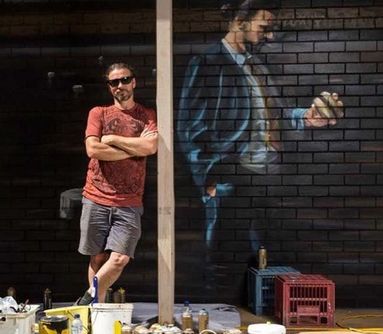
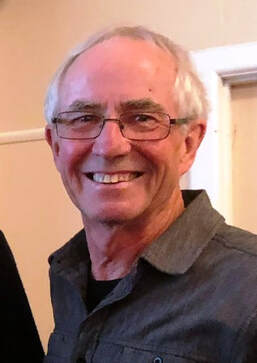
 RSS Feed
RSS Feed


